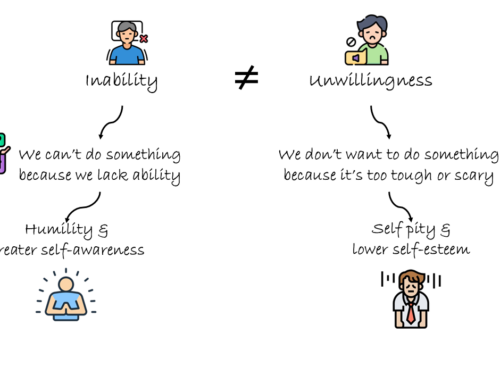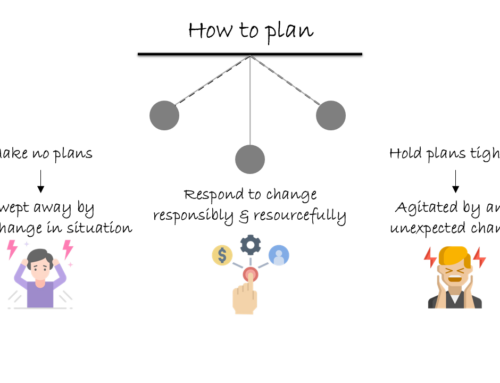Worrying hurts us even before things go wrong, while things are going wrong and after things have gone wrong.
Consider a student with a decent memory preparing for an exam. Whatever they can memorize, they can memorize only in the present. If they worry about whether they will recollect things during the exam, that worry will interrupt their present memorization.
Moreover, when things go wrong, when, say, during the exam, they can’t remember an answer, their habitual worrying will make them dread that they will forget other answers too. The resulting panic will prevent them from jogging their memory to ferret out the answer that was lying just below the surface of their memory.
And after things have gone wrong, when their panic has made them underperform in one exam, their compulsive worrying will make them imagine similar fiascos in future exams, thus undermining their preparations.
Thus, worrying doesn’t prevent things from going wrong; instead, it makes things go more wrong than necessary. However, for those habituated to worrying, the simple exhortation “don’t worry” doesn’t help much. Pertinently, the Bhagavad-gita (18.35) cautions that compulsive worrying characterizes determination in the mode of ignorance. As long as our consciousness remains in the mode of ignorance, our thoughts will race down the tracks of worry automatically, unintentionally, compulsively.
To counter the worrying habit most effectively, we need to practice bhakti-yoga for raising our consciousness from ignorance towards goodness and transcendence. By invoking Krishna’s calming presence in our heart, bhakti practices help us replace the habit of worrying with the habits of working and worshiping: working in a mood of devotional service to do what is in our capacity; and worshipping to strengthen our faith that, as the Gita (18.58) reassures, things beyond our capacity will be taken care of by Krishna’s grace.
To know more about this verse, please click on the image
Explanation of article:
Podcast:






Leave A Comment